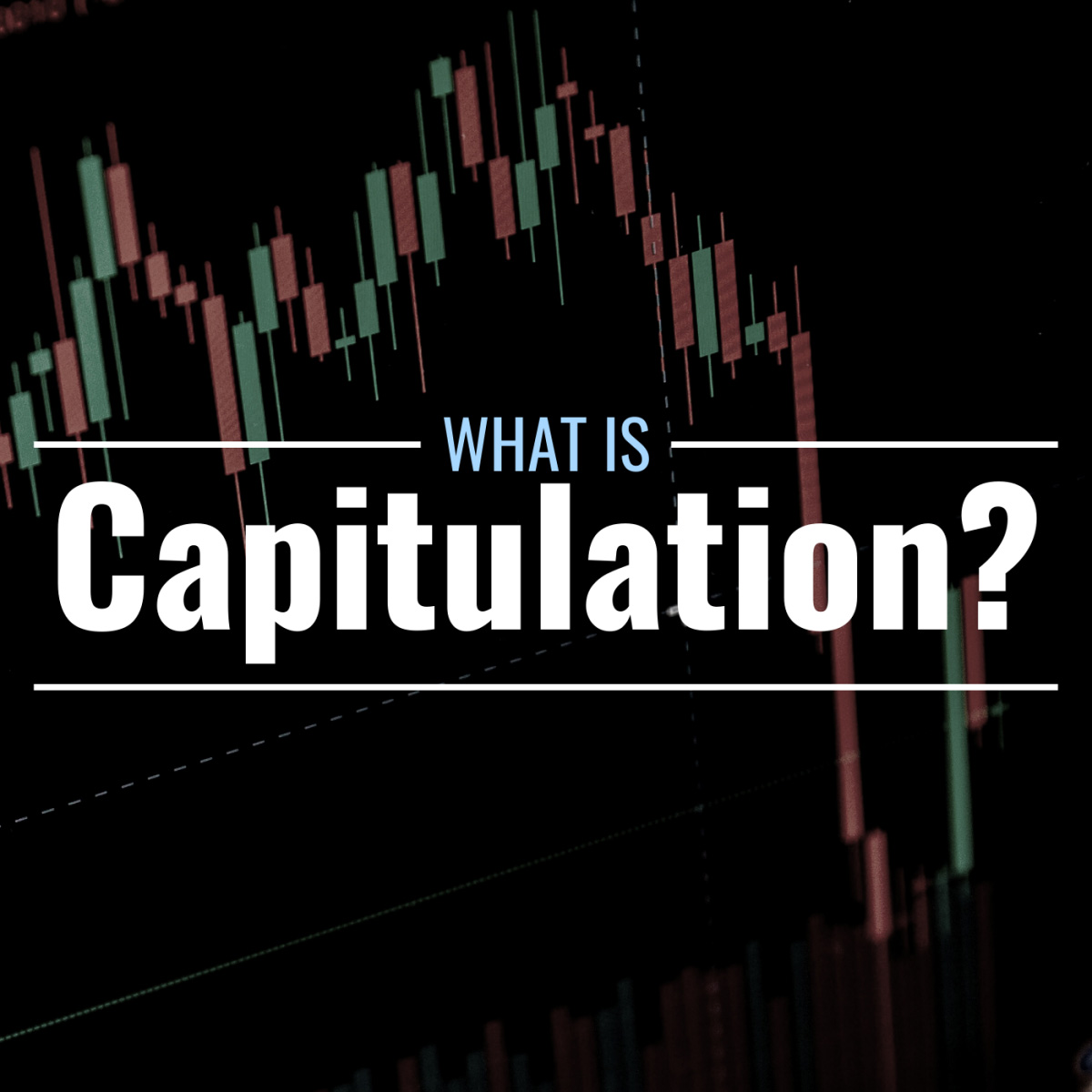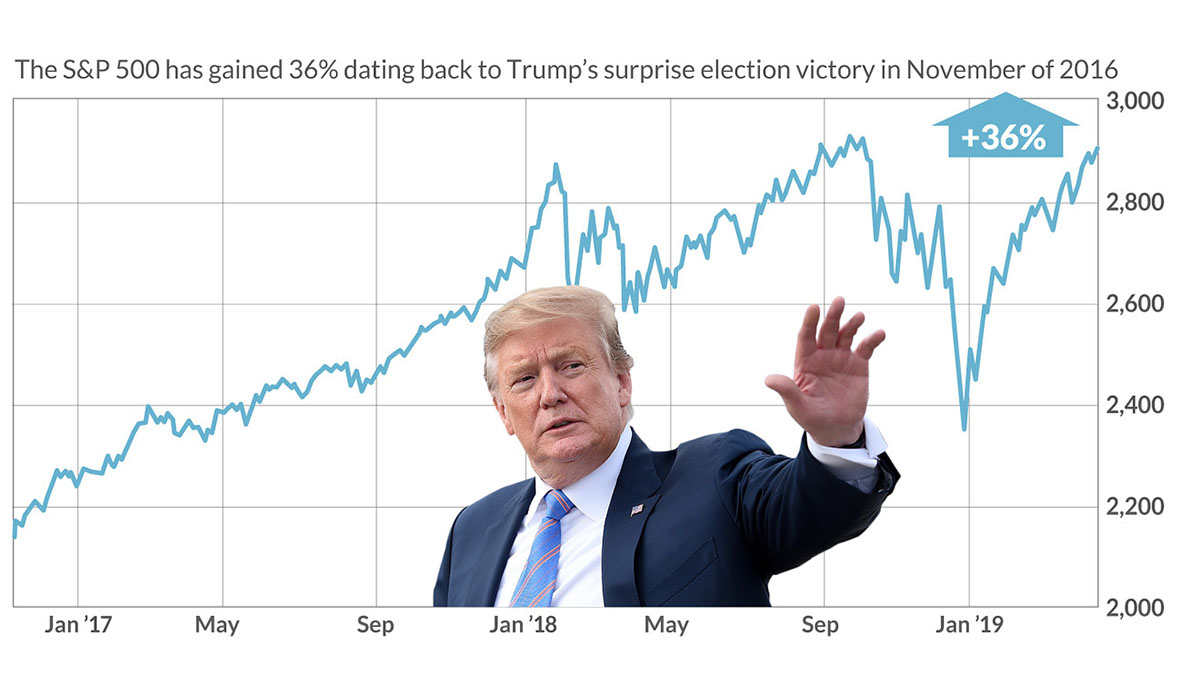

Finance
What Is A Whale In The Stock Market
Modified: February 21, 2024
Learn about the role of whales in the stock market and their impact on finance. Understand how these influential investors can make waves in the financial world.
(Many of the links in this article redirect to a specific reviewed product. Your purchase of these products through affiliate links helps to generate commission for LiveWell, at no extra cost. Learn more)
Table of Contents
Introduction
When it comes to the stock market, there are various players who can significantly impact the market movements and investor sentiment. One such type of player is known as a “whale.” In the world of finance, the term “whale” refers to an investor or group of investors who possess substantial financial resources and have the ability to make significant trades that can sway the market in their favor.
While the term “whale” may conjure up images of aquatic creatures, in the context of the stock market, it signifies a powerful and influential force. These investors have the means and the knowledge to make substantial bets on various stocks, influencing market trends and potentially reaping significant profits.
Understanding the role and impact of whale investors in the stock market is crucial for both seasoned investors and new market participants. In this article, we will delve into the definition of a whale in the stock market and explore the characteristics that distinguish them from other investors. We will also discuss the strategies used by whale investors, the impact of their activities on the stock market, and provide examples of famous whale investors who have made waves in the financial world.
However, it is important to note that while following the moves of whale investors can provide valuable insights, there are also risks associated with blindly mimicking their trades. We will also touch on the potential risks involved in following whale investors and provide a balanced perspective on the matter.
So, if you’re ready to dive into the depths of the stock market and explore the fascinating world of whale investors, let’s get started!
Definition of a Whale in the Stock Market
In the stock market, a whale is an investor or a group of investors who possess significant financial resources and have the ability to make large-scale trades that can impact the market. These investors are often institutional players, such as hedge funds, mutual funds, or investment banks, with substantial capital at their disposal.
What distinguishes a whale investor from an average retail investor is the sheer size of their trades. While retail investors typically buy or sell a relatively small number of shares, whale investors can execute trades worth hundreds of thousands or even millions of dollars. These substantial trades often attract attention and can have a profound effect on market sentiment and price movements.
Whale investors are known for their ability to move markets due to the substantial volume of shares they trade. Their actions can create significant fluctuations in stock prices, leading to increased volatility in the market as a whole. The presence of a whale investor in a particular stock may signal to other investors that they should pay attention to the stock’s performance and consider adjusting their investment strategies accordingly.
One important point to note is that the designation of an investor as a “whale” is not a formal classification but rather a colloquial term used to describe investors with significant financial power. The exact criteria for being considered a whale may vary depending on the context and the size of the market in question. In smaller markets, an investor with a relatively smaller amount of capital may be regarded as a whale, while in larger markets, such as the U.S. stock market, the bar is set much higher.
Overall, the key defining factor of a whale investor is their ability to exert influence on the stock market through their substantial trades. Their actions can create momentum in certain stocks, impact market sentiment, and potentially generate substantial profits or losses.
Characteristics of a Whale Investor
Whale investors possess unique characteristics that set them apart from other market participants. These characteristics contribute to their ability to make significant impacts on the stock market. Here are some key attributes commonly associated with whale investors:
- Wealth and Financial Resources: Whale investors have substantial financial resources at their disposal. They often manage large investment funds or have access to substantial capital, allowing them to execute sizable trades that can influence market movements.
- Institutional Players: Whales are often institutional players such as hedge funds, investment banks, or mutual funds. These entities have professional investment teams and sophisticated trading strategies.
- Deep Market Knowledge: Whale investors have a deep understanding of the financial markets. They employ teams of experienced analysts and researchers who conduct extensive market research, analyze financial data, and identify investment opportunities.
- Long-Term Perspective: Whales typically have a long-term investment horizon. They are willing to hold positions for extended periods and are not swayed by short-term market fluctuations. This long-term perspective allows them to withstand temporary market downturns and capitalize on long-term trends.
- Risk Tolerance: Given their financial resources and experience, whale investors typically have a higher risk tolerance than the average investor. They are willing to take calculated risks in pursuit of potentially higher returns.
- Ability to Move Markets: Whale investors have the potential to move markets due to the sheer size of their trades. Their actions can create significant buying or selling pressure, leading to price fluctuations. Other market participants often closely monitor their activities for signals and insights.
- Access to Information: Whales often have access to exclusive sources of information, whether through their networks, research capabilities, or industry connections. This information advantage enables them to make well-informed investment decisions and stay ahead of the curve.
- Adaptability: Whale investors are adaptable and embrace changes in market dynamics. They continuously evolve their investment strategies and adapt to shifting market conditions to maximize their returns.
These characteristics collectively contribute to the influential position of whale investors in the stock market. Their ability to mobilize significant capital, combined with their expertise and knowledge, positions them as key players in shaping market trends and investor sentiment.
Strategies Used by Whale Investors
Whale investors employ various strategies to navigate the complex and ever-changing landscape of the stock market. These strategies are often characterized by a combination of research, analysis, and execution. Here are some common strategies used by whale investors:
- Value Investing: Many whale investors follow a value investing approach. They search for undervalued stocks with a favorable risk-reward ratio. By identifying companies with strong fundamentals and attractive valuations, whale investors aim to capitalize on the market’s potential for long-term price appreciation.
- Growth Investing: Some whale investors focus on identifying companies with high growth potential. They seek out stocks of companies positioned for significant expansion and invest in them with the expectation of capitalizing on their growth trajectory. This strategy often involves investing in sectors such as technology, healthcare, or emerging markets.
- Event-Driven Investing: Whale investors may utilize event-driven strategies, capitalizing on specific corporate events such as mergers, acquisitions, spin-offs, or initial public offerings (IPOs). By carefully analyzing the potential impact of these events on stock prices, whale investors aim to profit from the resulting price movements.
- Quantitative Investing: Whale investors often employ quantitative models and algorithms to identify investment opportunities. These models analyze vast amounts of financial data, market trends, and statistical patterns to make data-driven investment decisions. Such strategies can help whale investors identify opportunities that may be missed by traditional fundamental analysis methods.
- Hedging Strategies: Whale investors may also use hedging strategies to mitigate risk in their portfolios. Hedging involves taking positions in derivatives or using other financial instruments to offset potential losses in a particular investment. These strategies can help protect whale investors from adverse market movements.
- Activist Investing: In some cases, whale investors may take an activist approach and acquire a significant stake in a company to influence its strategic direction or management decisions. Activist investors advocate for changes such as board appointments, capital allocation decisions, or corporate governance reforms to enhance shareholder value.
It is important to note that these strategies are not exclusive to whale investors and can be implemented by other market participants as well. However, the scale, resources, and expertise of whale investors often allow them to execute these strategies on a larger scale and potentially reap higher returns.
It’s essential to remember that whale investors employ sophisticated strategies and have extensive resources at their disposal. While these strategies can yield substantial profits, they also come with risks. Investors should carefully evaluate their own risk tolerance and conduct thorough research before considering implementing any investment strategy.
Impact of Whale Activities on the Stock Market
Whale activities can have a significant impact on the overall dynamics of the stock market. The large-scale trades and influential positions of whale investors can lead to several effects:
- Price Movements: When whale investors enter or exit a position in a particular stock, it can cause substantial price movements. Their significant buying or selling pressure can drive up or push down the stock price, leading to increased volatility in the market.
- Market Sentiment: Whale investors’ actions can influence market sentiment and investor perception. Other market participants often closely monitor whale activities, viewing them as signals or indicators of potential opportunities or risks. Positive actions by a whale investor can instill confidence in a stock, while negative actions can create uncertainty and prompt others to reevaluate their positions.
- Liquidity and Trading Volume: Whale investors often contribute to increased liquidity and trading volume in the market. Their substantial trades add depth to the market, making it easier for other investors to buy or sell shares. This liquidity can improve the overall functioning of the market.
- Market Trends: The actions of whale investors can contribute to the formation or acceleration of market trends. If a whale investor makes a substantial investment in a particular sector or industry, it could attract attention and potentially spark interest from other market participants. This can lead to increased investment in the sector, causing a domino effect and driving the market trend further.
- Volatility: Whale investors can introduce volatility into the market, especially when their trades deviate from market expectations. Sudden large-scale actions by a whale investor can create market shocks and increase intraday volatility, making it challenging for other investors to predict short-term price movements.
It is crucial for market participants to closely monitor whale activities and consider their implications. Understanding the impact of whale investors’ actions can help investors make informed decisions and adjust their strategies accordingly.
However, it is important to note that while whale activities can influence the market, they are not infallible indicators of future price movements. Investors should conduct their own research and analysis, considering other factors such as company fundamentals, market conditions, and their own risk tolerance before making investment decisions.
In summary, the activities of whale investors can significantly shape the stock market’s dynamics, impacting price movements, market sentiment, liquidity, and overall market trends. While their actions can provide valuable insights, it is essential to maintain a balanced perspective and not rely solely on whale activities when formulating investment strategies.
Examples of Famous Whale Investors
Throughout history, there have been several famous whale investors whose investment strategies and market activities have made waves in the financial world. Here are a few notable examples:
- Warren Buffett: Known as the “Oracle of Omaha,” Warren Buffett is one of the most renowned and successful investors of all time. His investment company, Berkshire Hathaway, manages a massive portfolio of stocks and has consistently outperformed the market. Buffett is known for his value investing approach and long-term perspective.
- George Soros: George Soros, a hedge fund manager, gained widespread attention in 1992 when he made a massive bet against the British pound, earning him over a billion dollars in profits. Soros is known for his macroeconomic and speculative investing strategies and his ability to capitalize on global market trends.
- Carl Icahn: Carl Icahn is an activist investor known for taking large positions in companies and pushing for corporate changes to enhance shareholder value. His aggressive investing style and ability to influence management decisions have earned him a reputation as a formidable investor in the financial world.
- Ray Dalio: Ray Dalio founded Bridgewater Associates, one of the world’s largest hedge funds. Dalio is known for his unique investment philosophy based on economic cycles and his focus on risk management. He popularized the All-Weather strategy, which aims to create a diversified portfolio that performs well in various market conditions.
- David Einhorn: David Einhorn is a value-oriented hedge fund manager who gained recognition for his successful short selling bets. He is known for his in-depth research and analysis, betting against companies he believes are overvalued or have fundamental issues. Einhorn’s investment strategies have garnered attention and respect from the investment community.
These are just a few examples of famous whale investors who have achieved remarkable success in the stock market. Their investment strategies, track records, and unique approaches to investing have inspired and influenced countless other investors in the financial industry.
It is important to note that while studying the investment strategies of famous whale investors can provide valuable insights, it is essential for individual investors to understand their own financial goals, risk tolerance, and investment preferences. Blindly following the trades of famous investors may not always lead to successful investment outcomes and can expose investors to unnecessary risks.
Risks Associated with Following Whale Investors
While it may be tempting to closely follow the investment moves of famous whale investors, it is important to consider the potential risks involved. Here are some risks associated with blindly following whale investors:
- Lack of Context: Whale investors often have unique investment strategies and perspectives shaped by their specific goals, risk appetite, and market conditions. Simply mimicking their trades without understanding the context can lead to suboptimal investment decisions.
- Delayed Information: By the time information about the trades of whale investors becomes publicly available, it may already be outdated. Whale investors typically trade in large volumes, which can create a delay in the reporting of their activities. Retail investors who try to replicate their trades may be entering positions late and potentially missing out on the full benefit.
- Portfolio Fit: The investment portfolios of whale investors may not be suitable for every individual. Each investor has unique financial goals, risk tolerance, and time horizons. It is important to evaluate whether following the trades of a whale investor aligns with one’s own investment objectives.
- Market Influence and Liquidity: Following the trades of whale investors can sometimes impact market liquidity and lead to increased transaction costs. As more investors attempt to replicate the trades of a whale, it can create artificial demand or supply, potentially affecting the market’s natural equilibrium.
- Market Manipulation: It is crucial to be aware of potential market manipulation risks associated with following whale investors. While most whale investors operate ethically, there have been instances where some have manipulated markets or engaged in insider trading. Retail investors should exercise caution and remain vigilant to avoid falling victim to such practices.
- Losses and Volatility: Investing in stocks, even if following the trades of a successful whale investor, comes with inherent risks. Stocks can be volatile, and there is always a possibility of losses. Blindly following the trades of a whale does not guarantee positive returns and can expose investors to potential losses if proper research and due diligence are not conducted.
It is essential for individual investors to approach following the trades of whale investors with a critical mindset. Instead of blindly copying their every move, consider analyzing their investment theses, researching the stocks they invest in, and evaluating if those stocks align with your own investment strategy and risk tolerance.
Remember that investing is a personal journey, and while gaining insights from successful investors can be valuable, it is important to make informed decisions based on one’s own financial situation and goals.
Conclusion
Whale investors play a significant role in the stock market, with their substantial resources, deep market knowledge, and ability to make large-scale trades. Understanding the impact of whale investors and the strategies they employ can provide valuable insights for other market participants. However, it is important to approach following whale investors with caution and consider the potential risks involved.
While the actions of famous whale investors can be inspiring, blindly mimicking their trades without understanding the context and conducting proper research can be detrimental to one’s investment portfolio. Each investor has unique financial goals, risk tolerance, and investment preferences that should be taken into account when making investment decisions.
The stock market is complex and influenced by numerous factors beyond just the trades of whale investors. Other fundamental and technical indicators, company performance, and market trends should also be considered when making investment choices.
It is crucial to maintain an independent perspective, conduct thorough research, and develop a well-balanced investment strategy tailored to one’s own financial goals and risk tolerance. By doing so, investors can navigate the stock market with confidence and make decisions that align with their specific needs and objectives.
While following the activities of whale investors can provide valuable insights and potentially guide investment decisions, it is always advisable to seek professional advice and make informed choices based on one’s own financial circumstances. Remember, successful investing requires a combination of knowledge, research, and a disciplined approach to portfolio management.














